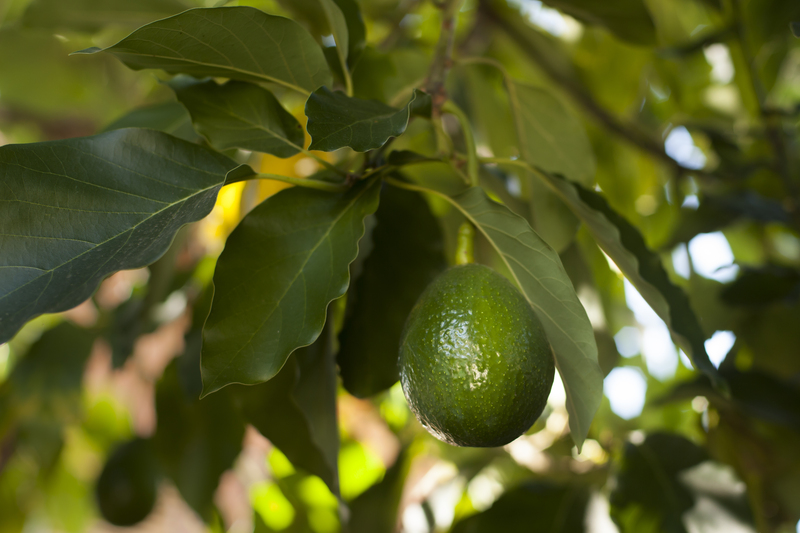Rooted in Success: 9 Beginner Tips for a Thriving Garden
Posted on 22/08/2025
Rooted in Success: 9 Beginner Tips for a Thriving Garden
If you've always dreamed of a lush, vibrant garden but don't know where to start, you're not alone. Cultivating your own green paradise might seem daunting for beginners, but with the right guidance, anyone can enjoy a flourishing, thriving garden. This comprehensive guide delivers the insider secrets and essential strategies to ensure your gardening journey is truly rooted in success. From soil science to watering wisdom, our beginner tips for creating an abundant outdoor oasis have you covered.
Why a Thriving Garden Matters: More Than Just Beauty
A healthy, vibrant garden is more than just a visual delight. Gardens provide sanctuary, fresh food, pollinator habitats, and even stress relief. Cultivating your own plants teaches patience, sustainability, and responsibility--lessons that run deep, just like strong plant roots. Let's explore the fundamental steps to grow your own success, from roots to blooms.

Beginner's Blueprint: 9 Tips to Ensure a Thriving Garden
1. Know Your Growing Conditions
Success in gardening starts with understanding your environment. Thoroughly assess your gardening space's:
- Sunlight: Does the area receive full sun, partial sun, or shade?
- Climate Zone: Refer to the USDA Plant Hardiness Zone Map (or your regional equivalent).
- Soil Type: Sandy, loamy, or clay? Test its drainage and texture.
- Space: Consider available square footage and accessibility for tending your plants.
Understanding these factors is the root of your garden success. Adapt your plant choices and layout accordingly for a higher chance of flourishing growth.
2. Start with Quality Soil - The Root of Thriving Gardens
Great soil means great gardens. Healthy, fertile soil provides the foundation for strong roots. Here's how to cultivate rich soil:
- Test the pH Level: Kits are available from garden centers--most vegetables thrive at pH 6.0-7.5.
- Amend the Soil: Add organic matter, such as well-rotted compost, peat moss, or shredded leaves.
- Ensure Good Drainage: Root rot and poor growth result from soggy, compacted soils.
Pro tip: If your native soil is poor, raised beds or large containers offer a controlled environment with optimal soil mix for a thriving vegetable or flower garden.
3. Choose the Right Plants for Beginners
Set yourself up for triumph by selecting plants suited to your skill level and region. Some options are easier and more forgiving for new gardeners:
- Vegetables: Radishes, lettuce, green beans, and zucchini are easy for beginners.
- Flowers: Marigold, sunflowers, nasturtium, and cosmos thrive with minimal fuss.
- Herbs: Basil, mint, chives, and parsley provide quick, rewarding harvests.
Select a few easy-care plants to begin. As your confidence grows, diversify your choices for a beautifully thriving garden.
4. Master Watering for Optimal Plant Health
Water is life for any garden. Over- or under-watering is a common mistake for beginners. Here's how to hydrate for success:
- Water Early: Timing matters--water in the early morning to minimize evaporation and disease risk.
- Deep and Less Often: Encourage deep root systems by soaking soil, not just the surface.
- Check Soil Moisture: Stick your finger into the soil up to your first knuckle; water if it's dry.
For a thriving backyard garden or balcony container, consistency in watering is essential--too much or too little will stress your plants and stunt growth.
5. Utilize Mulch: Your Garden's Secret Weapon
Mulch is your ally in root health, moisture retention, and weed suppression. Applying a 2-3 inch layer of organic mulch--like bark chips, straw, or shredded leaves--around your plants:
- Keeps soil consistently moist
- Prevents weeds from competing with your plants
- Regulates soil temperature
- Over time, adds organic matter as it breaks down
Beginner tip: Aim to keep mulch a couple of inches away from plant stems to limit rot and pest problems, ensuring your garden is truly thriving from the ground up.
6. Feed Your Garden for Abundant Growth
Fertilization is vital for a thriving garden, especially as plants mature and deplete soil nutrients. Use:
- Compost: Homemade or store-bought, it's rich in nutrients and improves soil structure.
- Slow-Release Organic Fertilizer: Especially effective for vegetables and heavy feeders.
- Liquid Feeds: Great for container gardens or when a quick boost is needed.
Read application instructions carefully--more is not always better! Over-fertilizing can damage roots and halt your garden's progress.
7. Stay Ahead of Pests and Diseases
Healthy gardens are less susceptible to insect damage and disease, but vigilance is key. Steps to maintain plant health include:
- Monitor Regularly: Check leaves, stems, and soil for signs of trouble.
- Encourage Beneficial Insects: Ladybugs and lacewings control aphids naturally.
- Remove Affected Parts: Clip off diseased leaves as soon as you spot them.
- Organic Methods: Use neem oil, insecticidal soap, or garlic spray as environmentally-friendly solutions.
Staying proactive with garden care keeps your plants healthy and your success firmly rooted.
8. Pruning and Deadheading: A Path to a Flourishing Garden
Pruning isn't just for trees--the right trimming supports robust plant growth. Here's what you need to know:
- Deadheading: Remove spent flowers to encourage more blooms in annuals and perennials.
- Pinching: Pinch back leggy plants (like basil) to promote bushiness and fresh growth.
- Prune Correctly: For shrubs or fruiting plants, use clean, sharp shears and research proper timing.
Regular maintenance ensures your garden looks lush, prevents diseases, and is truly rooted in success.
9. Cultivate Patience and Enjoy the Journey
Even the most successful gardeners started as beginners with small wins and occasional setbacks. The secret to a thriving garden is consistent care and patience. Nature's rhythm can't be rushed, but every effort you make nourishes both your plants and your spirit. Celebrate small victories--like your first sprout or bloom--and take pride as your garden matures, season by season.
Bonus Tips to Elevate Your Thriving Garden
- Start a gardening journal: Track plantings, successes, and lessons.
- Join a community: Local garden clubs and online forums offer support and advice.
- Use smart tools: Invest in ergonomic, beginner-friendly tools to make gardening easier and more enjoyable.
- Rotate crops: For vegetable plots, rotating crops helps prevent pests and maintain soil fertility.
Common Pitfalls to Avoid for a Thriving Garden
Based on the experience of gardeners worldwide, these are some frequent mistakes beginners make (and how to avoid them):
- Planting too densely: Overcrowding leads to competition for light and nutrients--follow spacing recommendations on seed packets or plant tags.
- Neglecting to label: It's easy to forget what you planted where, especially when seedlings look similar. Always label rows or containers.
- Ignoring sunlight needs: Putting sun-loving plants in shade or vice versa will result in weak, unhappy plants.
- Impatience: Gardens take time--avoid disturbing seeds or seedlings too often while they establish roots.
Reaping Rewards: The Benefits of a Well-Tended, Thriving Garden
Investing time and attention in your beginner garden brings rich rewards:
- Fresher, tastier home-grown vegetables, fruits, and herbs
- Breathtaking beauty, color, and fragrance to your home environment
- Intrinsic satisfaction as your knowledge and skills blossom
- Increased biodiversity and support for local wildlife
- Physical and mental wellness from nature connection and mindful activity

FAQs: Rooted in Success Gardening Insights
-
Q: Can I start a thriving garden in a small space?
A: Absolutely! Container gardens, vertical planters, or raised beds can deliver an abundant, flourishing garden in even the smallest patios, balconies, or courtyards. -
Q: How do I know how often to water?
A: Test the soil moisture regularly; water when the top inch feels dry. Weather, plant maturity, and container type all affect watering needs. -
Q: What's the easiest way to enrich my soil?
A: Add organic compost or well-rotted manure to new beds each season to increase fertility and microbial activity.
Conclusion: Dig In and Grow Your Success
Every lush, thriving garden begins with a single step--and these 9 beginner tips are the foundation for a flourishing, rewarding experience. By aligning your planting choices with your local conditions, nurturing healthy soil and roots, providing adequate water & nutrition, and staying vigilant against pests and diseases, you can enjoy a beautiful and bountiful garden--one deeply rooted in success. Remember: patience, consistency, and a spirit of discovery turn every new gardener into a seasoned grower. Dig in, get your hands dirty, and watch your thriving gardening journey unfold!
Latest Posts
Merging Style and Function in Your Garden Seating Setup
Bountiful Backyards: Gardening as a Climate Solution
Harness Nature's Speed with 9 Fast-Progressing Privacy Hedges

